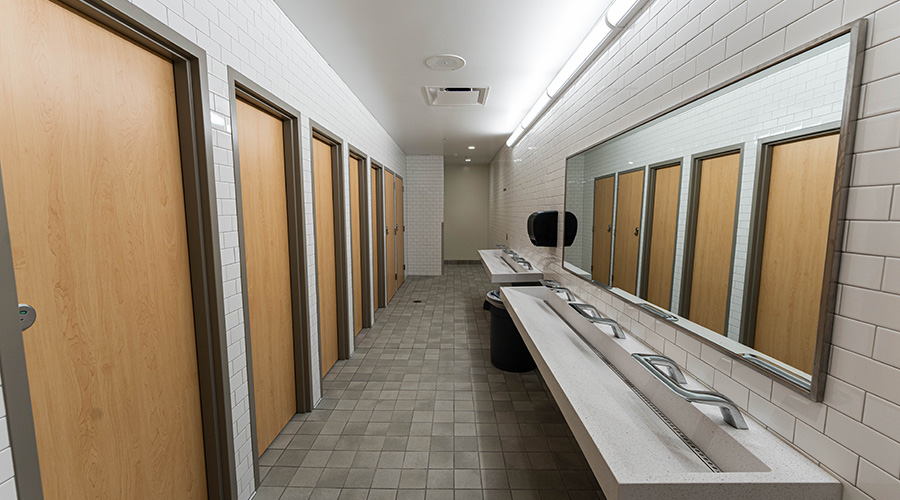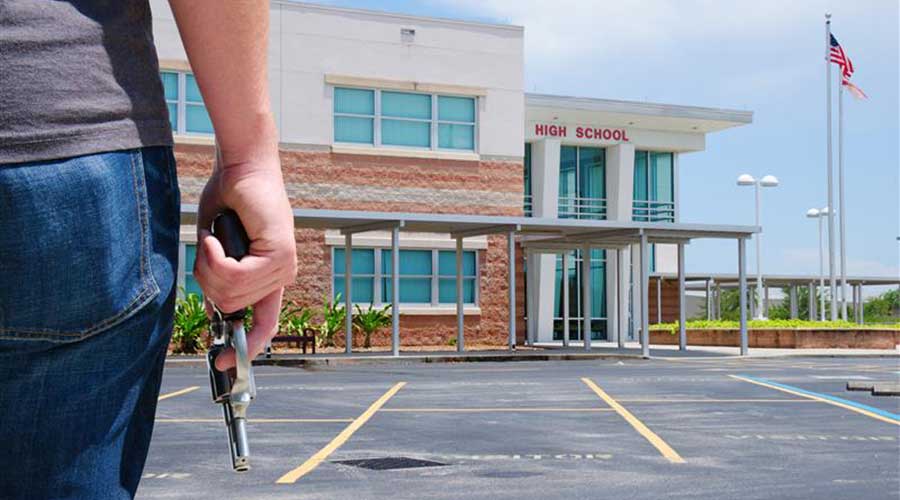Utility Vehicles Help University Roll On to Greener Grounds
University of Florida’s utility vehicles play a critical role in sustainable operations on the expanding campus.
By Dave Lubach, managing editor
The University of Florida in Gainesville recently unveiled a $1.6 billion infrastructure plan to upgrade and expand the campus and its facilities.
The university’s board of trustees approved the plan in December 2021, setting the stage for a decade of projects that will add 1 million square feet of facilities.
The sprawling institution sits on 2,000 acres and contains more than 1,000 buildings, so getting around the university grounds in a timely and efficient manner is important for its maintenance and grounds crews.
As the university expands and continues its commitment to more sustainable operations, maintenance and grounds crews are part of that focus. One area where Florida continually evolves is the facilities service team’s approach to its utility vehicle (UTV) fleet.
An evolving fleet
With an expansive campus and a facilities team consisting of up to 950 employees, UTVs are workhorses in Gainesville.
“Most all of our departments use UTVs basically in some respects, from the building service or the janitorial people,” says Allen Masters, assistant director of building operations and maintenance. “We’re using UTVs for our supervisors, who are supervising zones and buildings. They take them out each morning and park in a zone and then are able to travel between buildings with UTVs to move team members and supplies around.”
Masters’ team has about 30 UTVs in its fleet. They are a mix of gasoline, diesel and electric vehicles. The fleet also includes electric cars. The UTVs help the facilities team reach areas that aren’t accessible by trucks. They also help the maintenance staff adapt to the changing needs on campus.
“Accessibility is an issue for us with the university moving to a more pedestrian-friendly campus,” Masters says. “For us, that means several of the roads that were used to service buildings will no longer exist.
“We won’t be able to drive (trucks) within 100 yards of buildings and offload filters and building supplies or tools. Moving to a smaller UTV and possibly towing a trailer is one of the options we’re looking at expanding in order to continue serving the campus in an effective manner.”
Increasingly, gasoline and diesel-fueled machines are getting replaced by electric-powered vehicles. The trend toward electricity is part of the university’s goal of achieving carbon neutrality.
“That’s something we’re looking for, and the industry seems to be moving in the same direction,” Masters says. “We’ve found a couple of manufacturers now who are now offering standard UTVs that are available in an electric model. This is the best of both worlds and helps us reach our carbon neutrality goal.”
The university’s move to carbon neutrality is further reflected in other vehicle purchases when UTVs might not meet the department’s needs.
“A lot of the vehicles that we’re purchasing are small, diesel-powered,” Masters says. “Those are a fit when we need the power to pull trailers and other equipment around. To help with sustainability, we’re also using a biodiesel fuel mixture.
“Our green purchasing program maintains a list of vehicles that are more sustainable, and many of those are now hybrids or full electric.”
Specification needs
Weather conditions and campus infrastructure contribute to the challenges Masters faces when specifying new UTVs.
The number of roads the UTVs travel on are diminishing, but enough still exist and the campus is so vast that many of the machines regularly travel on streets instead of turf areas or paths designed to accommodate smaller vehicles. The roads can create more wear and tear on the vehicles.
“We’ve found through trial and error over the years that many specific UTVs work better than others on the paved surfaces,” Masters says. “Some models can’t withstand the long drives on pavement, since they were originally designed for driving them off the road. It’s a matter of how we use them and something that we have to work through.”
When specifying UTVs to be used on pavement, he pays close attention to the transmission types and tires.
A more durable transmission is required for the pavement-traveling vehicles because of their tendency to travel longer and at higher speeds than an off-road UTV. Specification also includes a tire evaluation so UTVs for road use are equipped with the proper tires so the machines perform more efficiently.
"We’ve purchased models that work better on the roads,” Masters says. “With that information, we are able to specify that specific model, which has narrowed down the brands we want to purchase.”
With hot and humid weather conditions in Florida for most of the year, a respite from the sun is a must for the fleet.
“Some of the options we’ve started looking for are the hard cabs and doors,” Masters says. “We tried the zip-up doors and windows like those you see on golf carts, but the (ultraviolet) rays and the heat here just deteriorate the plastic. Guys are outside in 95 degrees and 100 percent humidity during the summer. We try to find some with air conditioning so that when they do get a break or move to another area, it gives them the opportunity to cool down. It’s the only time they can really cool off for a few minutes before getting back into the heat.”
The department’s UTVs also must be able to tow other equipment or have dump beds so operators can transport brush, rocks and mulch.
Strobe lights and emergency alarms are also a must for UTVs on the crowded campus.
"We have strobes on them for visibility,” Masters says. “We’re having a closer interaction with pedestrians, skateboards, electric scooters and bicycles, so just being more visible and safer to those people on campus is important. There’s a big effort to make sure we have backup alarms and similar options.”
Fleet management
The university’s grounds management teams demand plenty from their UTVs, from hauling mulch and personnel to emptying trash cans and patrolling campus in a safety capacity. On an evolving campus such as the University of Florida, UTV use is constant, so it is important to have fleet maintenance and replacement plans in place.
The university’s facilities services include an in-house maintenance staff that takes care of many common issues.
“We have a certified repair motor pool shop in facilities services who complete vehicle repairs on all of the university vehicles and perform annual vehicle inspections to ensure their safe operation,” Masters says. “We also provide fuel for campus vehicles.”
Masters’ team pays close attention to the condition of the UTVs before deciding when it is time to replace a vehicle instead of repair it.
“We do have a vehicle replacement plan,” he says. “We use a life-cycle analysis, the age, the condition, the overall usage of the vehicle, how many times it’s been in the shop, and what kind of repairs it’s had done, as compared to the cost of replacement.
“Once we get to the point where the cost of repairs is too high, that vehicle will go on the replacement list. There are times when we need just a specific piece of equipment that’s used for a specific purpose. These are generally one-offs.”
As 2022 unfolds, the University of Florida campus, like many across the country, has been battling the COVID-19 pandemic. With all of the activity on the Gainesville campus because of the $1.6 billion construction program planned for the foreseeable future, Masters’ team will play a major role in the growth.
“Funding for deferred maintenance is our biggest challenge right now, but the university has now committed to an influx of funds to help that,” Masters says. “This influx will be a tremendous help for us in maintaining our standing as a top-five public university.”
Dave Lubach is the managing editor for the facility market team. He has six years of experience writing in the facility management industry.
Related Topics:












